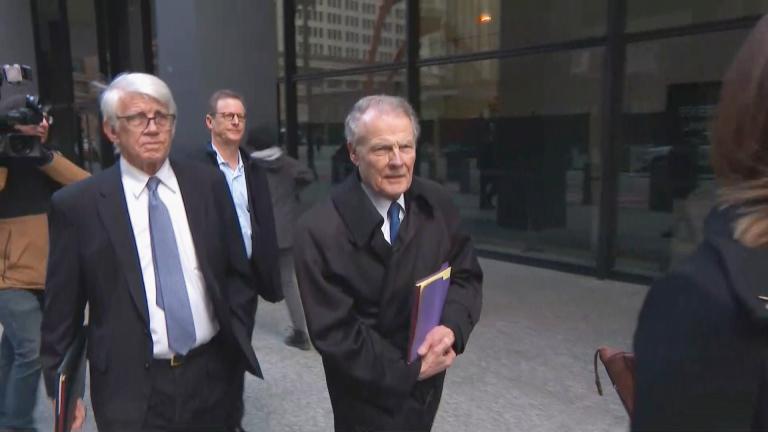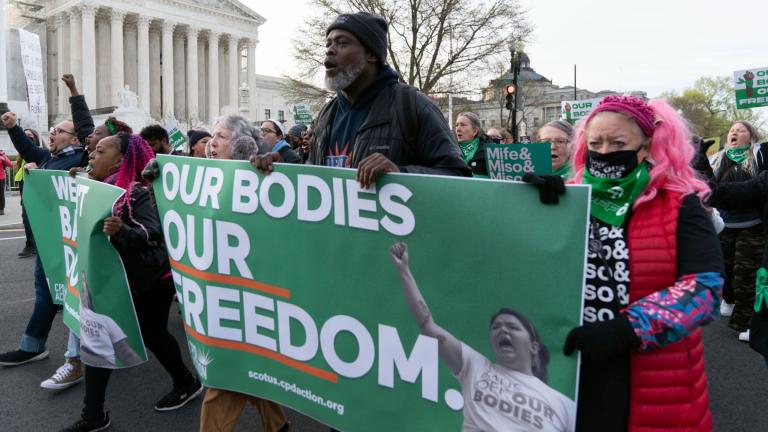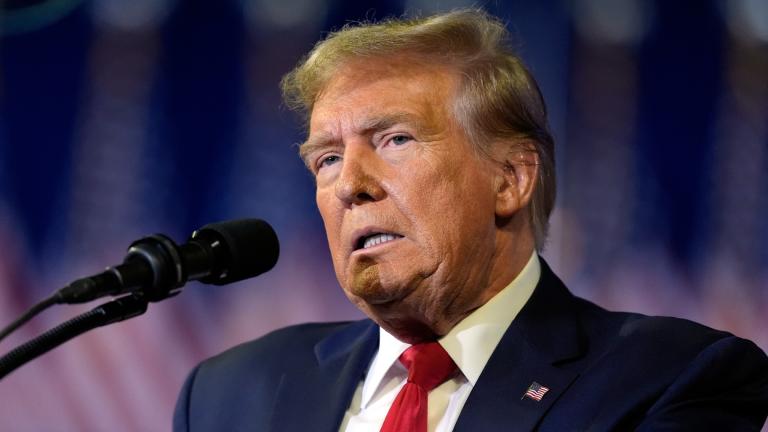A major U.S. Supreme Court ruling Wednesday dealt a blow to public sector unions in a case that was started by Gov. Bruce Rauner in Illinois. In a 5-4 decision, the court ruled government workers who choose not to join a union do not have to pay fair share fees to that union, even though the union still has to bargain on behalf of all employees.
In the case of Janus v. AFSCME, the Supreme Court overturned 40 years of precedent and ruled government workers who do not join a union cannot be compelled to pay fair share fees in lieu of union dues because those unions donate to political parties and negotiate contracts with elected officials.
The ruling concludes that it violates the First Amendment because unions cannot compel someone’s money to go toward a political activity they may not agree with. In the majority opinion, Justice Samuel Alito wrote, “this arrangement violates the free speech rights of nonmembers by compelling them to subsidize private speech on matters of substantial public concern.”
Rauner originally brought the case, but stepped aside as Mark Janus, a child care specialist with the Illinois Department of Healthcare and Family Service, became the lead on it. Both praised Wednesday’s ruling on the steps of the Supreme Court.
“Forcing workers who do not agree with the political agenda of a union and to pay dues to that union was fundamentally wrong and unfair, and today the Supreme Court upheld that agreement in an extraordinary victory for justice and freedom of speech,” Rauner said.
“We have 5 million public sector non-union members that can make their own choice as to whether or not they want to be a part of that union,” Janus said. “It will not affect their collective bargaining. Unions will still have that right.”
The Rauner administration issued a memo to all government employees informing them that the fair share fees that were being withheld would be returned and informed them they could opt out of the union and not lose any benefits.
A labor expert at the University of Illinois says he predicts the ruling will mean about 8 percent of workers could choose to leave unions, and it could cost unions nationwide $25 million.
“That will equate to hundreds fewer people who are working for those unions, and that constraint on resources will limit the capacity to act on multiple fronts to be able to bring legal claims against the employer, to educate workers on the job, to represent workers in terms of disputes,” said U of I labor professor Robert Bruno.
The minority justices on the court issued a blistering dissent, calling it alarming that the court would overturn 40 years of precedent. Indeed, a case in 1977 ruled the other way, and the Supreme Court almost always respects previous rulings unless they believe the previous court got it extraordinarily wrong.
In her dissent, Justice Elena Kagan wrote “it prevents the American people, acting through their state and local officials, from making important choices about workplace governance. And it does so by weaponizing the First Amendment, in a way that unleashes judges, now and in the future, to intervene in economic and regulatory policy.”
The Chicago Teachers Union says it doesn’t believe the ruling will cause its members to want to leave the union.
“The labor movement in this country is part of the history of this city,” said CTU Vice President Jesse Sharkey. “We’ve been around a long time before these fees. Nobody in the union is afraid of free speech. We want to try and convince members about their collective power about why we’re stronger together and have to defend the things we need to defend.”
Democrats running for office in Illinois immediately issued their own condemnation of the decision. Democratic gubernatorial candidate J.B. Pritzker and Mayor Rahm Emanuel need to shore up support of organized labor, and they both sent out campaign blasts condemning the decision saying they stood with working families.
Conservative party candidate for governor Sam McCann knocked the decision too. “This case is a clear attack on workers’ ability to stand up for better conditions at work, and it all started with Bruce Rauner,” he said.
Wednesday’s ruling impacts any union that represents public sector workers; AFSCME, SEIU, teachers unions, police and fire unions (although thde last two tend to have strong union representation because of the legal dangers of their jobs). Any private sector unions can still collect fair share fees.
Follow Paris Schutz on Twitter: @paschutz
Related stories:
US Supreme Court Ruling Strikes Blow to Public Unions
A Look at the Biggest US Supreme Court Decisions as Term Nears End
Landmark Supreme Court Decision Coming, And Illinois is Center Stage
Illinois Case Could Deal Major Blow to Public Sector Unions
From Gerrymandering to Gay Rights, Supreme Court Faces ‘Blockbuster’ Term
US Supreme Court to Take on Union Fees Case Janus v AFSCME








